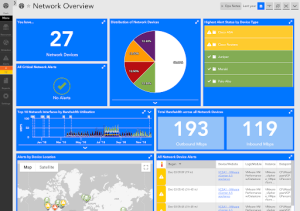There are a number of ways to get a business loan with no money. One of these is the SBA loan. Other options include Accounts receivable financing and a line of credit.
The first step to finding a loan is to determine how much you need
This will allow you to compare the terms and interest rates offered by various lenders. Also, take into account how long you will need to pay back the loan.
- One way to boost your chances of getting a loan is to consider collateral.
- Collateral is an asset that a lender owns that is put at risk if you do not repay the loan. You may be required to place inventory, equipment, or real estate on collateral.
- You should also consider your credit score.
- A higher score can help you get a better rate and more choices. However, a bad score can make it difficult to get a business loan.
- You can also look into working capital loans and lines of credit.
Working capital loans can help you finance part of your marketing budget. These are typically easier to obtain than traditional business loans.
Is accounts receivable financing a great way for small businesses?
Accounts receivable financing can be a great way for small businesses to get quick capital. However, there are some important things to keep in mind. You may have to pay more interest than you might with a traditional business loan, and it might take longer for you to receive your cash.
Accounts receivable financing companies will review your business’s financial history and credit standing before they give you a loan. They also have a specific process to follow when you apply.
Accounts receivable financing company
- Once you’ve found an accounts receivable financing company, you can begin applying.
- The approval process can take as little as 24 hours. In addition, many lenders offer an online portal where you can check your status and see what invoices are pending.
- Some lenders will also require you to pay an upfront fee.
- This will cover their underwriting costs. It’s best to make sure the company you choose offers reasonable rates and fees.
Another option is to use a line of credit for your accounts receivable. These can be used for larger amounts than a traditional business loan. Business lines of credit can be useful in cases when a business needs extra money to handle an unexpected expense.
You can get accounts receivable financing even if your credit history is poor
- Many lenders offering this service
There are many lenders offering this service, and some banks even offer this type of financing. If you decide to go with a line of credit, you can be approved for up to 50% of your unpaid AR balance.
- Accounts receivable financing is a great way to help your business manage its cash flow. Many businesses struggle to get traditional bank loans. This option can provide you with a quick and convenient loan.
- To determine if you are eligible for accounts receivable financing, you’ll need to know your customer’s credit history. Depending on how good your customer’s credit rating is, you might qualify for a low-interest rate. But remember, if your customers default on their payments, your financing may be declined.
- A company that uses this type of financing can help you manage your cash flow, and it can also allow you to get the funding you need quickly.
For example, BlueVine can provide funding in as little as a few hours.
Business credit cards
If you are a new business owner or an independent contractor, a business credit card can help you build a solid credit history. However, if you don’t have a good personal credit score, getting one can be difficult. For example, some cards are available only to those with a FICO score of 580 or higher. You may also have to wait for approval.
- Variety of perks and features
Business credit cards come with a variety of perks and features. Most offer rewards programs. Some also have long-term benefits.
They can help you save money in the short and long term. To determine which business credit card is best for you, take a look at your own needs and the features of the various cards available.
If you are an independent contractor or an owner of a small startup, a credit card that offers a rewards program can be a worthwhile investment. A credit card with a tiered reward program can be especially helpful.
- Get a secured card.
These can help you get a large amount of credit without the worry of racking up large bills or high fees. The downside is that the interest rates on these types of cards are higher.
One of the best options for someone with no business credit is a card that offers a 0% intro APR period.
This means that you can make purchases from month to month without incurring any interest. It also means you have more freedom to spend.
- Bild your credit and pay taxes on time.
Getting a business credit card that has the best rewards and features may not be easy. Many lenders vary their terms and conditions, so be sure to ask before committing to a specific card.
Using a business credit card can help you build your credit and pay taxes on time.
You need to keep an eye on your spending, as some issuers frown on personal purchases. Keeping your accounts in good standing can improve your credit rating and make you eligible for other credit products.
Fortunately, there are many ways to get a business credit card that fits your needs and budget. Look for a card that offers a 0% introduction APR and rewards.
SBA loans can be a great way to finance your small business
Whether you’re starting a new business or need to purchase equipment, they provide flexible terms and low-cost financing.
- The SBA offers a variety of different loan types, all with varying requirements. For instance, some lenders will require you to put up a down payment of 10%. Other lenders may have more specific requirements, such as requiring a minimum credit score.
- You can use an SBA loan to buy equipment or to move your existing operations to a new location.
- But you’ll want to understand exactly what your loan will cover before you start applying. Typically, these types of loans are used for working capital.
- If you’re looking for a more long-term solution, you might consider an SBA 7a loan. These loans offer a 25-year fixed rate.
- They are also available for owner-occupied commercial real estate properties. In addition, they offer 100% “plus” financing for building construction or purchase.
- our lender is obligated to do a background check on you and your managers. There are also options for collateral, such as inventory or accounts receivable.
- The SBA will also guarantee a portion of your loan. A typical SBA loan will have a 75% or 85% guarantee, depending on the lender. That guarantee will serve as a mortgage insurance policy for the bank.
If you’re a startup company or plan on expanding your business, you’ll likely need to put up a significant down payment. For example, you might need to put down at least 10% of the total cost of your business.
If you’re ready to finance a large purchase, it might be time to consider a no-deposit business loan. Fortunately, there are plenty of lenders that offer no-collateral loans.
The business line of credit
If you are in need of working capital for your business, but you don’t have the money to get a loan, you can apply for a business line of credit. Lines of credit are available in a variety of forms, from secured to unsecured and come with different features and interest rates. These options can help you bridge the gap between when your revenue increases and when your cash flow begins to decline.
Businesses can use their lines of credit to cover expenses such as inventory purchases, production costs, and even payroll
Especially helpful during periods of low sales.
A line of credit is especially helpful during periods of low sales. It allows for quick payback, which can allow you to keep moving forward. However, the amount you can borrow will depend on your income and the age of your business.
- To qualify for an unsecured line of credit, your business must have been in operation for at least six months. It will also need to be in good financial shape.
- This can be proven by presenting financial statements, tax returns, and banking documents. The more years you have been in business, the more likely you are to qualify for the best terms.
- While a business line of credit can be beneficial for many businesses, it is important to find the right one for your needs. You can start by contacting several lenders and checking with your local banks.
- You can also look online for small business lines of credit. In this case, you will need to have an open business bank account. Some unsecured business lines of credit require less documentation, but you will have to have a high business credit score to qualify for these loans.
- If you have been in business for several years and have a positive history of paying back your debts, you will be more likely to qualify for an unsecured line of credit at a reasonable rate.
- However, if you have bounced checks in the past, you may not qualify for an unsecured business line of credit.
- Your business will also need to have a positive cash flow to qualify for an unsecured line of credit. Lenders will look negatively at businesses that overdraw their accounts, so it is important to avoid this.
Conclusion
If you are considering starting a new business, you will need money. There are several different types of loans available. These include traditional bank loans, SBA loans, and alternative financing sources. Each has its own requirements. It’s important to learn more about the options before you decide on one.
Business loans are designed to help you pay off debts and keep your business running smoothly. They can also be used to cover unexpected expenses. But if you have a strong financial history, it can be difficult to obtain a loan.






